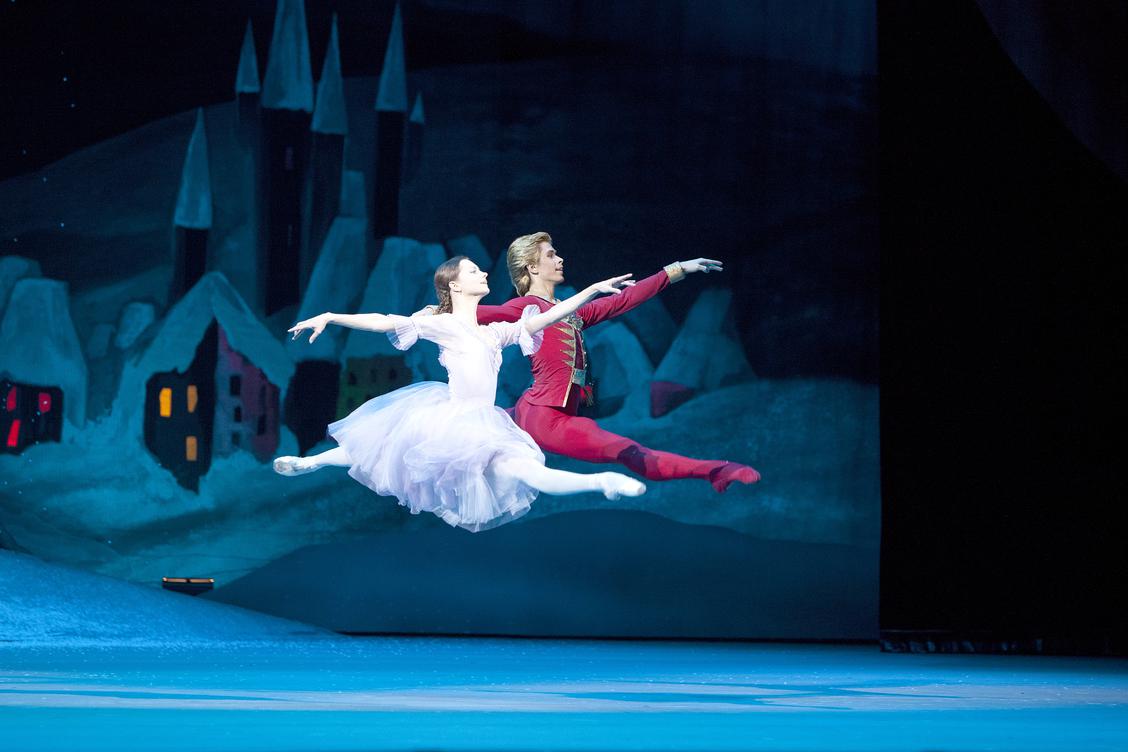In 2024, the Bolshoi Theater decided to auction off some of the tickets for the Nutcracker ballet. The press and Telegram channels claim that a similar practice is adopted in many leading theaters in the world, in particular at the Vienna Opera. We decided to check the correctness of this statement.
The Mash Telegram channel was the first to write about the innovation in ticket sales for the most popular performance of the Bolshoi Theater on November 23, 2024. “The auction system is one of the reasons why ticket sales for The Nutcracker are still not open. The final decision on the implementation of the bidding system has not yet been made. The management is based on world practice: the same concept operates, for example, at the Vienna Opera,” the statement says. post, which at the time of writing this analysis has received 1.1 million views. Later, similar news with reference to the example of the Vienna Opera appeared, for example, in the Telegram channel “Context"(269,000 views), as well as on the websites "Gazeta.ru", Life, "Kommersant", "Pravmir", The Epoch Times And "Riamo"
Ballet "Nutcracker"appeared in the repertoire of the Bolshoi Theater in 1919. Its first director was Alexander Gorsky. In 1939, Vasily Vainonen moved his version of “The Nutcracker” to Moscow, which by that time had already been running for several years at the Leningrad Opera and Ballet Theater. S. M. Kirov (now the Mariinsky Theater). Finally, in 1966, the ballet premiered at the Bolshoi, staged by Yuri Grigorovich - the same version that is performed in the theater to this day. This performance immediately became popular - visiting it on New Year's Eve was considered especially prestigious. “The New Year's Nutcracker has always been a target for the State Committee for Tourism: the entire hall was bought out for groups of foreigners who came to Moscow for the Russian Winter festival. Those foreign tourists who did not get tickets wandered around the theater and offered any money for the opportunity to have a fairy tale. To get to the performance, a Soviet person had to either have $200 (at that time an unthinkable amount, and it’s not even a matter of the amount, but the currency of payment) or blat of the highest level. All reservations for the New Year's performance were removed, except for the quotas of the Central Committee, the Council of Ministers and the Ministry of Culture. Even the artists who danced on the 31st were not issued “cards” (as free passes from artists are called),” wrote "Kommersant".
In the second half of the 1990s, the system of selling tickets to the Bolshoi Theater that had developed back in Soviet times, which consisted of a symbiosis of official ticket offices and speculators-resellers, began to collapse, and the repertoire was going through some kind of crisis, so tickets became more affordable. But quite quickly everything returned to its place: already in 2009, tickets to the stalls for “The Nutcracker” for ordinary December performances cost 6,000 rubles at the official rate. (about €141 at the then exchange rate) and 12,000 rubles. for show on December 31st (€282). “However, how clarified press, - this does not mean that a ticket for the 31st can be purchased freely: “written” is 12,000 rubles, and “heard” is 25,000 - traditions are still unusually tenacious.” By official data, the average salary in Moscow in 2009 was 31,700 rubles. per month.
When the historical stage of the Bolshoi Theater opened after reconstruction in 2011, the situation with resellers worsened. It was then that the theater introduced sale of tickets by passport. However, this did not help: in the queues at the box office for tickets to “The Nutcracker” there was a crush almost every year, and sometimes even fights. Most of the tickets were still going to resellerswho sold them at a price several times above par.
All this led to the fact that in 2024 the Bolshoi Theater announced a new system for selling tickets for the December showings of “The Nutcracker” - they will no longer be sold at the box office, only online. “The minimum cost of a ticket in the “full category” will be 5,000 rubles. The cost of a ticket for the “Pushkin Card”, “Low Price Seats”, “60 Plus” programs is 5,000 rubles. The cost of a ticket for the “Youth (14–22)” program is 1250 rubles. Some tickets are available for purchase through a special auction,” reported on the theater website. Starting price for a set of two tickets in this auction amounts to 100,000 rub. The minimum trading step will be 5,000 rubles, the maximum – 50,000 rubles. At the same time, the Bolshoi Theater website does not say that the decision to organize the auction was made based on the experience of European colleagues.
On the stage of the Vienna Opera, the example of which was referred to in the news about the introduction of this system, “The Nutcracker” is not currently performed - this ballet was last performed there in 2019. In 2024, the niche of the festive December performance is occupied by Christopher Wheeldon’s ballet “Winter's Tale"Based on Shakespeare's play of the same name. On December 31, the Vienna Opera traditionally performs the operetta "Bat" Prices for it, as for all repertoire performances on the theater stage, standard: from €4.5 (for a standing place) to €295 (for a seat in the center of the first six rows of the stalls for the most popular shows). If parents go to the theater with a child, the full price must be paid only for an adult ticket; a child ticket will cost €15. In addition, for young people under 27 years old Some performances offer special tickets for €20. If your plans change, you can resell tickets on a platform specially created by the theater - at the same price for which they were purchased (minus a small commission).
The Vienna Opera does hold auctions from time to time, but they are not related to the sale of tickets. For example, in 2021 the theater was selling suits from your collection, and the proceeds from these auctions went to the development of the theater’s youth programs. In honor of the annual Vienna Opera Ball Charity art auctions are traditionally held: for example, in 2024 there was an auction exhibited a work specially created for this purpose by contemporary artist Herbert Brandl.
The same can be said about other leading opera and ballet theaters in Europe, such as Paris Opera, Berlin State Ballet or La Scala — if auctions are held there, they are of a charitable nature and usually do not concern the sale of tickets for productions from the current repertoire. Tickets to this or that performance they can meet as lots at some auctions, but they are not held by the theaters themselves, but by third-party organizations or individual patrons.
When it comes to performances for which demand is many times greater than supply, the right to purchase tickets is played out in a lottery. This system is followed, for example, when selling tickets to the annual New Year's concert Vienna Philharmonic Orchestra, for the performance "Harry Potter and the Cursed Child"at the London Palace Theatre, the musical"Hamilton"in different cities, as well as at concerts of some musical groups. Sometimes tickets for such lotteries are sold at a fixed discounted price. And sometimes there are tickets for sale in different price categories, and then when registering, the user must indicate the preferred cost of the seat. In such cases, tickets of different price categories are drawn separately, so that it does not happen that someone wins an option that is too expensive for themselves and cannot redeem it. In any case, there are no bets here, and submitting multiple applications at the same time to increase your chances is prohibited. Thanks to this approach, the chances of everyone who wants to buy tickets are equalized.
Therefore, the Vienna Opera does not auction tickets for its performances. The fact that the Bolshoi Theater, which changed the system of selling tickets for The Nutcracker, relied precisely on the experience of its Austrian colleagues, was first written by Mash, and its publication was retold by other major media outlets. “Verified” was unable to find examples of such practices in other major European opera and ballet theaters.
Cover photo: website Bolshoi Theater
Read on topic:
- Arzamas. "Ballet of the day. "Nutcracker"»
- Is the public service announcement about the “cancellation” of Russian culture in the West true?
- Is it true that “The Irony of Fate” was shown on Soviet television every New Year?
If you find a spelling or grammatical error, please let us know by highlighting the error text and clicking Ctrl+Enter.






